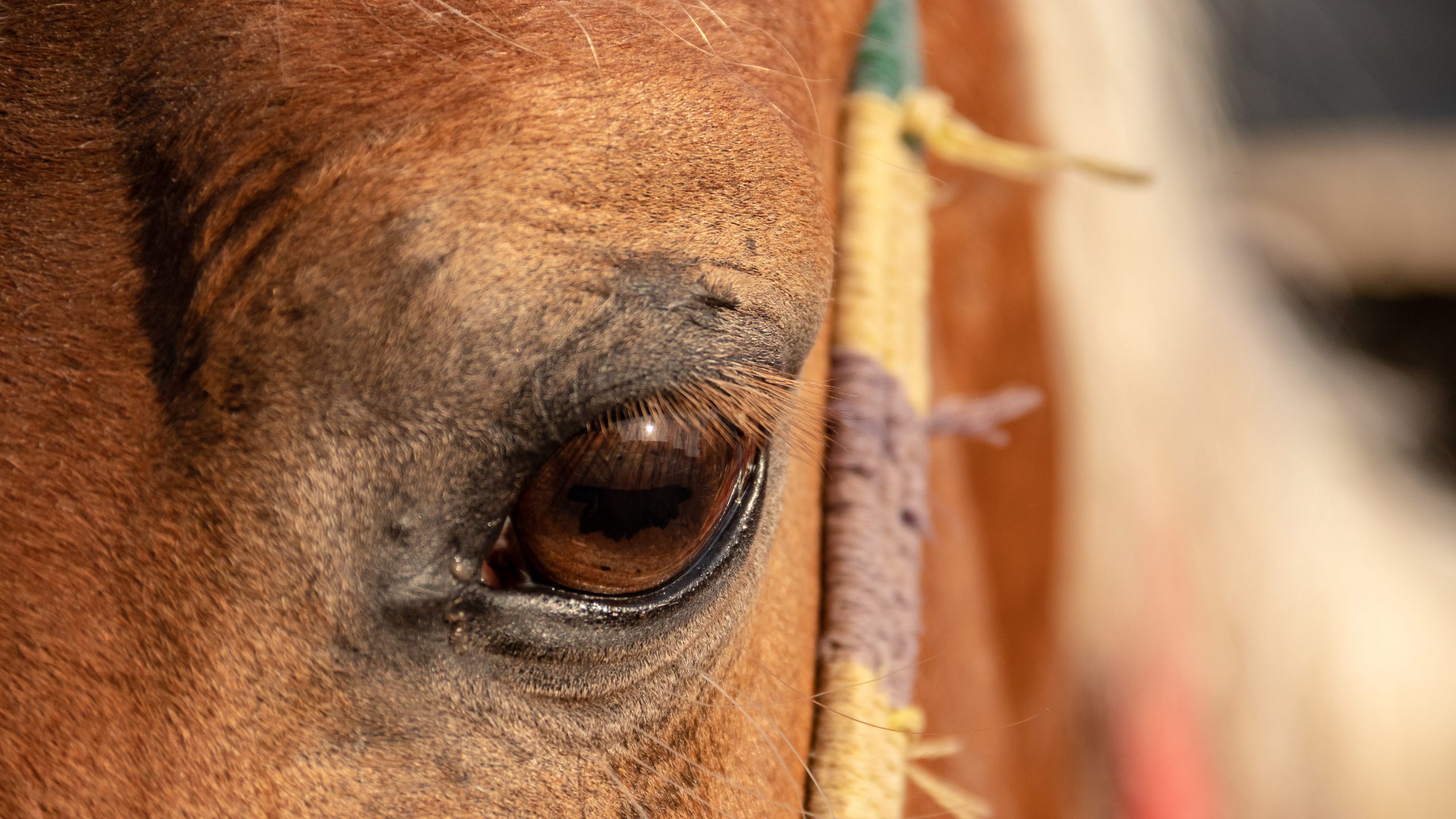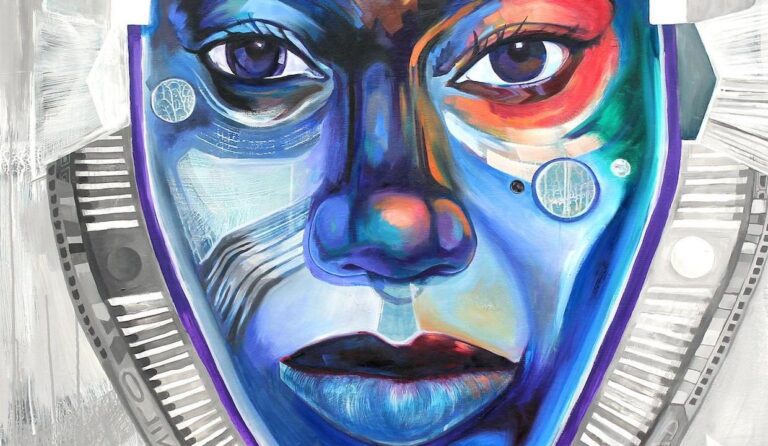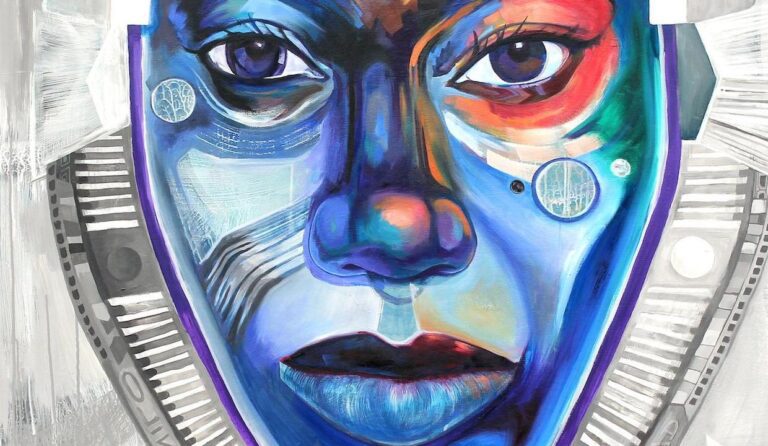What Do You Identify As?
Intermission is hosting creative and critical responses to select shows from Soulpepper’s Around the World in 80 Plays as a part of the Taking on the World mentorship program for emerging IBPOC artists and arts writers. Taking on the World is a partnership between Intermission, Soulpepper Theatre Company, Brock University, the University of Toronto, and the University of Windsor, with funding from the Social Sciences and Humanities Research Council of Canada.
Soulpepper Theatre’s Around the World in 80 Plays amplifies the recognition of international pieces that have something to say about their respective country and encapsulates Canadian audiences to come along for the journey. On May 14th, I enjoyed listening to Soulpepper’s audio production of Girish Karnad’s Hayavadana in the comfort of my home. While listening to the production, I questioned my social location and identity as a Black Caribbean-Canadian woman on an international level. In my family, my mother, my siblings, and I were born in Canada however, my father immigrated from St. Kitts and Nevis to Canada when he was twelve. My understanding of what it means to be Canadian is shaped through the intersection of my race, class and gender. But this lies the question: What does it mean to be truly Canadian? What does it mean to be a racialized woman? What does it mean to be a true racialized Canadian woman? For me, there is sometimes a contradiction or an imposter feeling of being Caribbean-Canadian, when having to explain the intersections of my ethnic identity to strangers that can’t quite place me to a specific ethnic or cultural group from my external appearance.
The audio performance of Hayavadana surrounded this idea of wholeness and identity for me, a Caribbean woman who is a second-generation Canadian. Having ancestry from India, Africa, the Caribbean, Syria, and Europe due to colonization and migration,caused me to think about my identity and my feeling of unknowingness of where I truly come from. For my family, there was a disassociation or a detachment to any other culture that our ancestors were a part of, except for being Caribbean. Trying to trace my ancestors is a journey for me that started in high school because my Grandparents shared with my siblings and me that their parents were not native to the Caribbean. This revelation triggered my discovery of where my lineages came from because I believe you need to know the past in order to be prepared for the future.
In our interview, director Miriam Fernandes said that her interest in Karnad’s theatre journey in discovering his connection to Indian theatre is what caused her to look closely at her own identity. Fernandes’s parents immigrated to Canada in the ’70s, resulting in her being born and raised in Canada. Miriam said in our interview that “I didn’t really think so much about being Indian. I felt very Western, very Canadian, until I graduated from theatre school. And everybody was like, you’re Indian, you got to play Indian”. Her lived experience of identifying with multiple cultures compelled her to direct this audio piece for a Canadian audience.
For this production, Fernandes changed the gender identity of the narrator character Bhagavata from “sir” to “ madam” (Bhagavata madam), which is prominent in how the audience is lead through the play. Changing the identity of the narrator Bhagavata (Ellora Patnik) modernizes Karnad original writings because placing a woman in a pivotal role for the storyline advocates for women of colour to take control of our own stories. Fernandes also said that her decision to amplify the voice of a woman narrator was because “in reflection about the storytellers in my life, I think of my grandma. I think of Bhagavata as an elder who’s telling us a story. It could be my grandma with somebody playing a little bit of music, and she’s telling us the story, and we get to go on this journey.” The stories that our elders share helps in the process of shaping our identity and self. Having a self-identified woman storyteller also allows for the exploration of other women characters in this production to have agency of their identities and sexuality.
Placing a woman in a pivotal role for the storyline advocates for women of colour to take control of our own stories.
In addition, the character Padmini (Nadine Bhabha) is a woman of colour who knows what she wants but struggles with “having her cake and eating it to”. She is able to share her inner sexual desires with us as a listening audience, but her cup is not full. She falls in love with; best friends Devadatta (Ravi Jain) and Kapila (Anand Rajaram) who equally love her back. However, this love triangle ultimately changes the fates of the three characters. She is in love with Devadatta’s mind, but is also in love with Kapila’s body, she does not want to choose. This causes her to feel incomplete, her openness to the audience of feeling incomplete is overt. She knows what can fill her cup, but she doesn’t voice her needs directly to the men because she is aware of what her community will say about her. This aspect of identity, of hiding and concealing what we are for the approval from a community, is something that I personally struggle with. Having to jump through hoops and check off boxes just in hopes of fitting and gaining this new sense of identity does not last, which is what occurs at the ending of the play. As corny as it may sound, what lasts is choosing to be authentically yourself. This transpires in every aspect of identity: ethnic identity, cultural identity, sexual identity, and gender identity.
Soulpepper’s Hayavadana helped me be okay with not having all the knowing pieces of my ethnic identity figured out. The events that take place in our lives don’t define us but give us the motivation to keep trying to be the truest versions of ourselves. Having multiple identities that don’t necessarily fit on paper or with other people’s perception of yourself, does not have anything to do with how you want to identify. If anything, having multiple intersectional identities that shouldn’t work is what makes us human.
Around the World in 80 Plays runs until June 30 on Soulpepper’s website. For tickets and more information, click here.









Comments